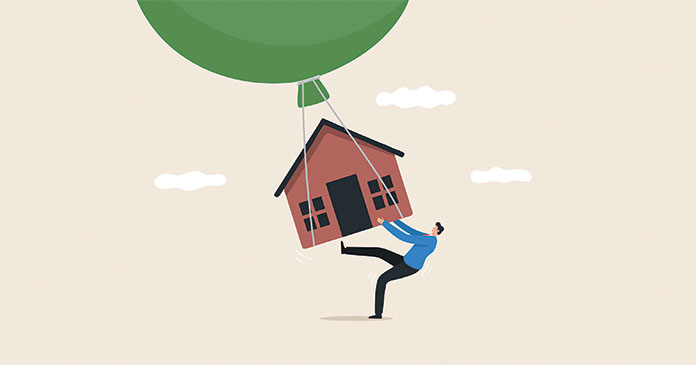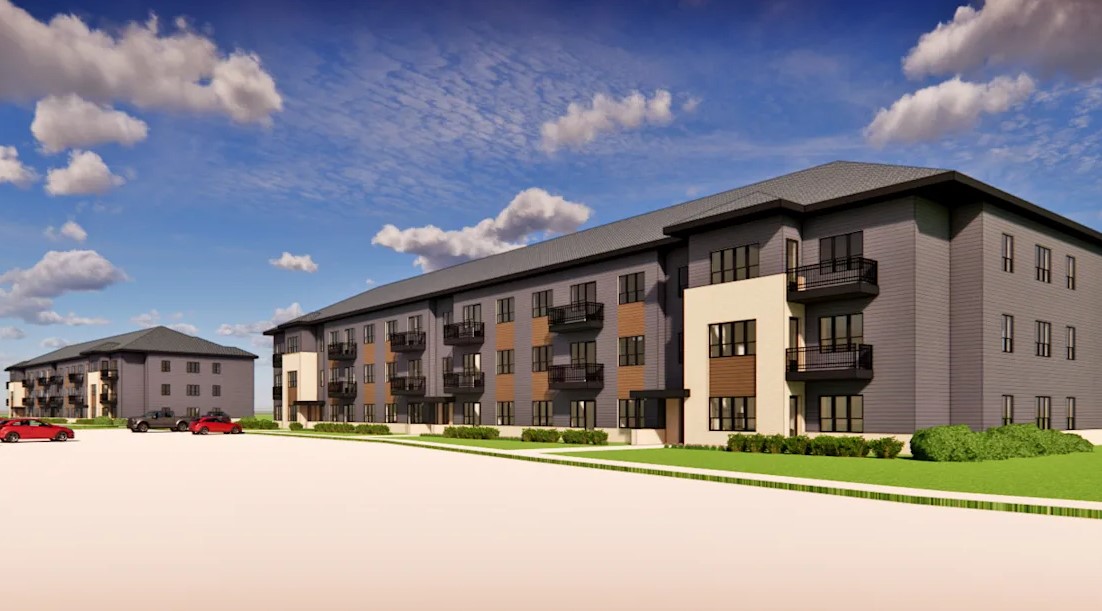The Federal Reserve Bank of Dallas identified signs of a “brewing U.S. housing bubble” in March. Though the sharp increase in home prices in itself does not indicate a bubble, the report said, there are other fundamental factors to consider, including “shifts in disposable income, the cost of credit and access to it, supply disruptions, and rising labor and raw construction materials costs are among the economic reasons for sustained real house-price gains.”
What causes the housing market to be “unhinged” from those fundamentals, is when “there is widespread belief that today’s robust price increases will continue,” the report said. “If many buyers share this belief, purchases arising from a fear of missing out can drive up prices and heighten expectations of strong house-price gains.”
Even though the report called the current housing market abnormal, the authors concluded that “there is no expectation that fallout from a housing correction would be comparable to the 2007–09” crisis in terms of its magnitude.
“Household balance sheets appear in better shape, and excessive borrowing doesn’t appear to be fueling the housing market boom,” said the report, adding that market participants and regulators are better equipped with tools and early warning detectors to thwart such a crisis.
Why housing will likely remain hot
If you were hoping for a major downturn to snag a cheaper home, think again. Most housing experts are predicting the market to remain strong for a while for several reasons.
Millennial demand for housing is up, with Gen Z right behind. The number of potential homebuyers is plentiful, with Americans who are either Millennial-aged or younger making up half of the U.S. population, or 166 million as of July 2019. This is significant because first-time homebuyers represent the largest share (31 percent) of people purchasing homes, according to data from the National Association of Realtors (NAR). And most first-time buyers are younger than 40, which means the buyer pool is deep–a good indication that demand will remain strong, especially since housing inventory is at historical lows.
“We won’t see a downturn because the housing market saw little increase in inventory for the past ten years. In a few years, Gen Z will be turning 30, and more financially ready to become homeowners than Millennials were at their age,” says Polina Ryshakov, senior director of research and lead economist at Sundae, a real estate marketplace for distressed properties. “This means that the demand for homes will be as high, if not higher, while inventory will still be behind in the demand.”
Supply can’t keep up with demand. The severely low supply is also helping fuel demand, and higher home prices, which is another reason why housing experts say the market will remain strong for years to come.
“The supply-demand imbalance is the primary reason home prices have escalated so rapidly,” says Rick Sharga, executive vice president at RealtyTrac. “And after not building nearly enough houses for the last decade, homebuilders will take several years at least to add enough new supply to balance the market.”
In a balanced market, the months of supply would be around six months—the time it would take to deplete all homes for sale at the current sales pace. But today’s market has only 1.7 months of supply, showing a drastic imbalance in favor of sellers.
It is a helpful sign that new home construction starts have been running above 1.7 million for the last 3 months. But even this high level of new homes starts is unlikely to put a dent in home prices.
“It will take time to reduce the housing stock debt we have accumulated,” says Odeta Kushi, deputy chief economist at First American Financial Corp. “The imbalance will continue to put upward pressure on house prices, even if they moderate from the peak pace of growth in 2021.”
Borrowers are less likely to default on their mortgages. Among the differences between today’s housing market and that of the 2008 housing crash is that lending standards are tighter due to lessons learned and new regulations enacted after the last crisis. Essentially, that means those approved for a mortgage nowadays are less likely to default than those who were approved in the pre-crisis lending period.
It’s rare today to come across a lender offering so-called “no-doc loans” where the applicant did not have to provide documentation of income—a common practice before the housing crash. Also, many loans backed by the government have a certain set of standards, like minimum credit score and down payment requirements.
And regulators now expect lenders to verify a borrower’s ability to repay the loan, among other standards.
There was more than $1 trillion in new mortgage originations in the fourth quarter of 2021 with 67 percent of those mortgages going to borrowers with credit scores exceeding 760. This score is considered “very good,” according to FICO.
“Lending standards have gotten tighter and credit scores for new mortgages are much higher on average now than they were in the early 2000s,” says Nicole Bachaud, an economist at Zillow. “What’s much more likely is a gradual slowdown in the pace of price appreciation where home prices continue growing, just not as fast as they are now.”
Warning signs that could dampen the housing market. Murmurs of a recession have breached the surface of what’s otherwise been described by many observers as a “strengthening economy.” Inflation started rising last year, setting off alarm bells as consumer prices began to climb.
In response to the inflation hike, the Federal Reserve raised its federal funds rate in May—the biggest Fed rate hike in 22 years—a sign there could be a slowdown.
While the federal funds rate does not directly impact long-term mortgage rates, it does have an effect on short-term rates like credit cards and adjustable-rate mortgages (ARMs). Higher interest rates could trigger a slowdown in consumer spending.
Goldman Sachs projects U.S. GDP for the end of 2022 to expand by a mere 1.75 percent. Additionally, economists at Goldman Sachs Group estimate up to a 35 percent chance that the economy will go into recession, which would impact the housing market.
Excerpt Natalie Campisi, forbes.com













